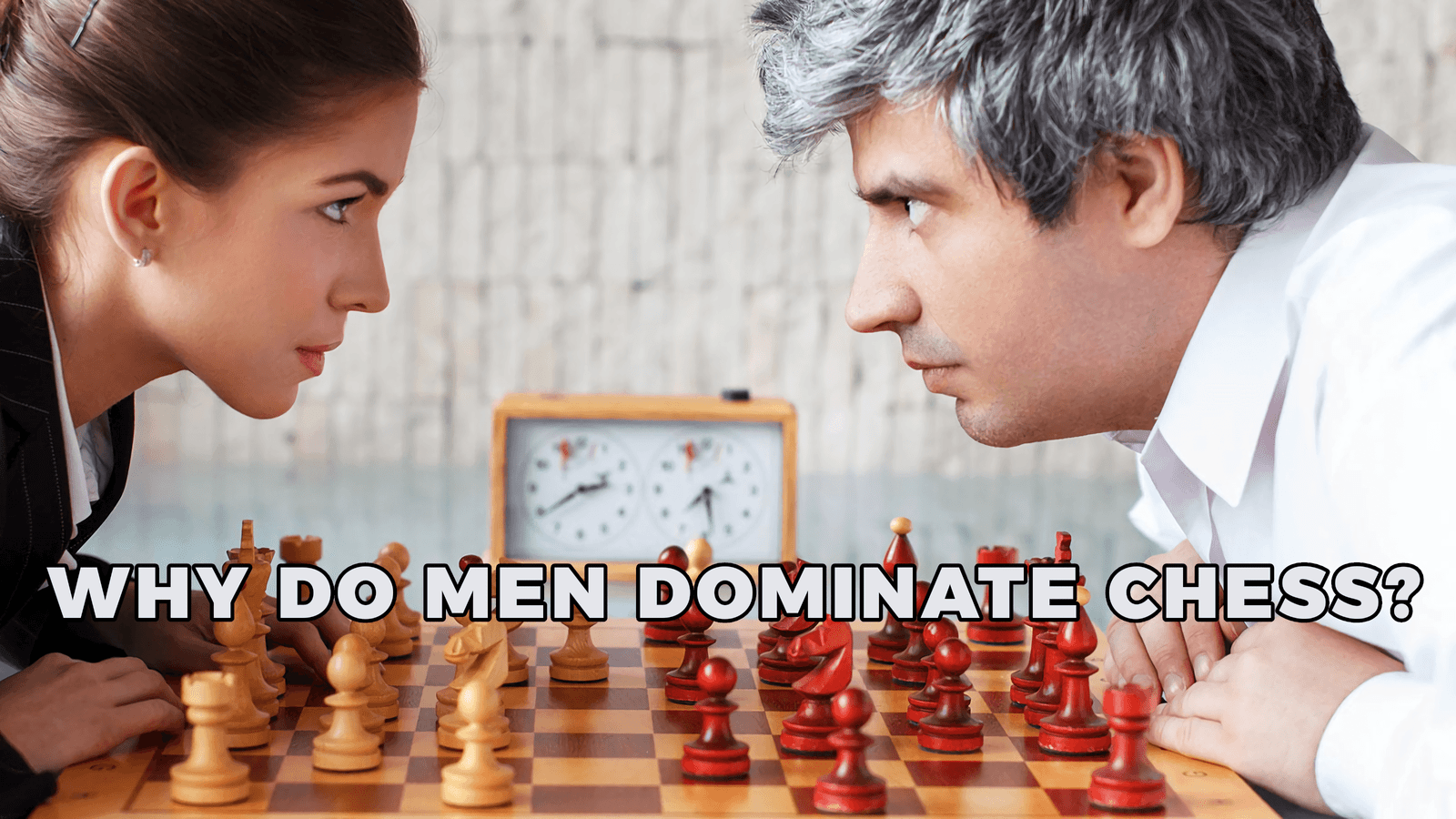
why do men dominate chess?
A college student recently dressed as a woman to take first prize at a chess tournament, igniting the conversation on the gender dynamics of chess.
It’s an interesting challenge to the traditional understanding of skill, competition, and gender in chess, since it’s a game in which males have historically held dominance.
Through exploring the social, psychological, and cognitive factors influencing this imbalance, we can find out why women are underrepresented at the highest levels of chess and what can be done about it.
Men Dominated Chess in the Past
Historically, men dominated chess. No woman ever became the World Chess Champion, and only a handful of women ever reached the top rankings.
This dramatic imbalance is not due to a lack of interest or effort from women but due to a combination of societal expectations, stereotypes, and structural barriers that have discouraged their participation and recognition in the game.
Societal Expectations and Support
Societal norms are one of the many reasons for the gender inequality in chess. Boys will often be encouraged to continue in competitive activities such as chess, while girls often will not be supported just the same.
Parents and teachers and mentors may actually subconsciously push children to play chess by showing them resources, encouraging and allowing them to improve through their skills. In contrast, girls may be steered toward other activities that are perceived to be more conventionally “feminine.” Unequal encouragement means an unbalanced playing field from the start.
The Role of Stereotype Threat
Stereotype threat is also a psychological phenomenon, and it has contributed much to the underrepresentation of women in chess. Stereotype threat happens when one fears confirming negative stereotypes about their group.
The stereotype that “men are better at chess” causes anxiety and impairs performance for women in chess in competitive environments. This pressure to disprove stereotypes takes the mind away from the game itself, thereby disadvantageing women.
Personality Traits and Competitiveness
Chess is a game of a mix of aggression, competitiveness, and resilience. Many studies have indicated that on average, men exhibit aggressive behavior more than women.
This can be useful for chess players as it might intimidate opponents through bold moves and psychological strategies in attaining victories.
Women may be equally good in technical mastery but differ in thinking when it comes to competing, which could make all the difference in big match situations.
Spatial Reasoning Skills and Cognitive Abilities
Spatial reasoning is another area where gender differences might impact chess performance. Spatial reasoning involves the ability to visualize and manipulate objects in the mind, a skill critical for planning moves and anticipating an opponent’s strategy.
Research suggests that men, on average, may have stronger spatial reasoning abilities, though this finding is controversial and influenced by cultural and educational factors. These potential differences, if they exist, could contribute to the overrepresentation of men at the highest levels of chess.
The Male Variability Hypothesis
Another theory that may explain gender disparities in chess is the male variability hypothesis. This idea suggests that men are more likely to be found at the extremes of ability—both the highest and the lowest levels.
Although the mean ability of men compared to women might be similar, the larger variance makes there a larger number of men at the top level of skills. This statistical explanation can account for a part of why men have dominated elite chess rankings.
Disguise and Identity: A Lesson in Fairness
The decision of a college student to compete masked as a woman brings in the debates of identity and fairness associated with chess.
Their succeeding indicates that genius and acumen exist not within some sort of societally defined and assigned framework and that the perception of gendered ability or incompetence with chess is one of artificial construction.
More importantly, it calls to question, through the steps of being outside the socially constructed binary, how very deeply certain biases can construct the images of ability or competition at play.
Addressing Gender Bias in Chess
To create a more inclusive environment, the chess community must address the barriers that discourage women from participating and excelling in the game. This includes:
1. Encouraging Early Interest: Providing equal opportunities for boys and girls to learn and play chess from a young age can help level the playing field. Schools, clubs, and parents should actively support girls interested in chess.
2. Combat of Stereotype: By challenging the assumption that men are better in chess by nature, reduces the psychological burden on female players. Successful female players may be a good motivation for future generations.
3. Creating Supportive Space: Women-only tournaments or mentorship programs may ensure women find a safe, non-competitive environment with less pressure from males for their improvement.
4. Promoting Research and Understanding: Continued research into the cognitive and psychological factors that influence chess performance will continue to help discover strategies to reduce gender disparity.
Societal Impact and the Path Forward
The societal impact of gender bias in chess is beyond what transpires in the chess board. It reflects general inequalities and missed opportunities, through which talent could rise and shine.
By attacking the biases, the world of chess can set up examples for other fields to come forward where women continue to be underrepresented. This is not only being just but also necessary to have growth and development for any discipline.
The college student’s unconventional approach to competing serves as a wake-up call for the chess community.
It reminds us that talent knows no gender and that creating a truly level playing field requires challenging long-held assumptions and embracing change. With deliberate efforts to foster inclusivity, the future of chess can be one where all players, regardless of gender, have an equal chance to succeed.







